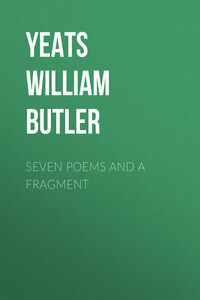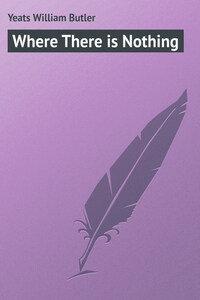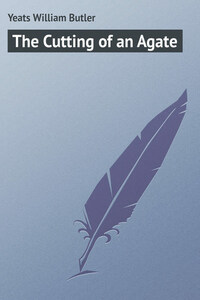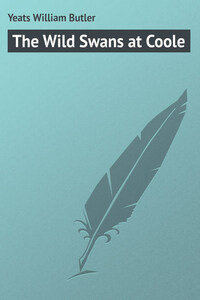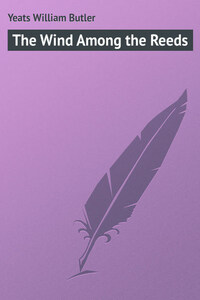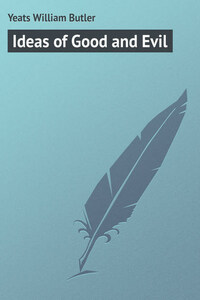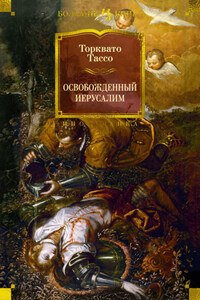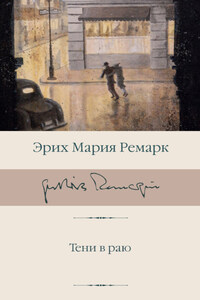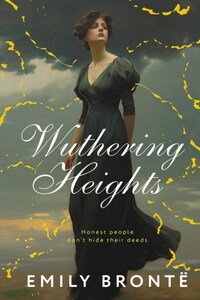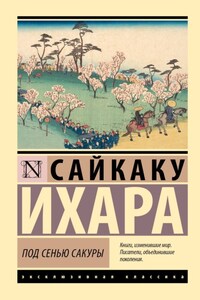The little theatrical company I write my plays for had come to a west of Ireland town and was to give a performance in an old ball-room, for there was no other room big enough. I went there from a neighbouring country house and arriving a little before the players, tried to open a window. My hands were black with dirt in a moment and presently a pane of glass and a part of the window frame came out in my hands. Everything in this room was half in ruins, the rotten boards cracked under my feet, and our new proscenium and the new boards of the platform looked out of place, and yet the room was not really old, in spite of the musicians’ gallery over the stage. It had been built by some romantic or philanthropic landlord some three or four generations ago, and was a memory of we knew not what unfinished scheme.
From there I went to look for the players and called for information on a young priest, who had invited them, and taken upon himself the finding of an audience. He lived in a high house with other priests, and as I went in I noticed with a whimsical pleasure a broken pane of glass in the fan-light over the door, for he had once told me the story of an old woman who a good many years ago quarrelled with the bishop, got drunk, and hurled a stone through the painted glass. He was a clever man, who read Meredith and Ibsen, but some of his books had been packed in the fire-grate by his house-keeper, instead of the customary view of an Italian lake or the coloured tissue-paper. The players, who had been giving a performance in a neighbouring town, had not yet come, or were unpacking their costumes and properties at the hotel he had recommended them. We should have time, he said, to go through the half-ruined town and to visit the convent schools and the cathedral, where, owing to his influence, two of our young Irish sculptors had been set to carve an altar and the heads of pillars. I had only heard of this work, and I found its strangeness and simplicity – one of them had been Rodin’s pupil – could not make me forget the meretriciousness of the architecture and the commercial commonplace of the inlaid pavements. The new movement had seized on the cathedral midway in its growth, and the worst of the old & the best of the new were side by side without any sign of transition. The convent school was, as other like places have been to me – a long room in a workhouse hospital at Portumna, in particular – a delight to the imagination and the eyes. A new floor had been put into some ecclesiastical building and the light from a great mullioned window, cut off at the middle, fell aslant upon rows of clean and seemingly happy children. The nuns, who show in their own convents, where they can put what they like, a love of what is mean and pretty, make beautiful rooms where the regulations compel them to do all with a few colours and a few flowers. I think it was that day, but am not sure, that I had lunch at a convent and told fairy stories to a couple of nuns, and I hope it was not mere politeness that made them seem to have a child’s interest in such things.
A good many of our audience, when the curtain went up in the old ball-room, were drunk, but all were attentive for they had a great deal of respect for my friend and there were other priests there. Presently the man at the door opposite to the stage strayed off somewhere and I took his place and when boys came up offering two or three pence and asking to be let into the sixpenny seats I let them join the melancholy crowd. The play professed to tell of the heroic life of ancient Ireland but was really full of sedentary refinement and the spirituality of cities. Every emotion was made as dainty footed and dainty fingered as might be, and a love and pathos where passion had faded into sentiment, emotions of pensive and harmless people, drove shadowy young men through the shadows of death and battle. I watched it with growing rage. It was not my own work, but I have sometimes watched my own work with a rage made all the more salt in the mouth from being half despair. Why should we make so much noise about ourselves and yet have nothing to say that was not better said in that work-house dormitory, where a few flowers and a few coloured counterpanes and the coloured walls had made a severe and gracious beauty? Presently the play was changed and our comedian began to act a little farce, and when I saw him struggle to wake into laughter an audience, out of whom the life had run as if it were water, I rejoiced, as I had over that broken window-pane. Here was something secular, abounding, even a little vulgar, for he was gagging horribly, condescending to his audience, though not without contempt.
We had our supper in the priest’s house, and a government official who had come down from Dublin, partly out of interest in this attempt ‘to educate the people,’ and partly because it was his holiday and it was necessary to go somewhere, entertained us with little jokes. Somebody, not I think a priest, talked of the spiritual destiny of our race and praised the night’s work, for the play was refined and the people really very attentive, and he could not understand my discontent; but presently he was silenced by the patter of jokes.

